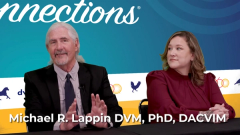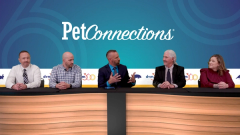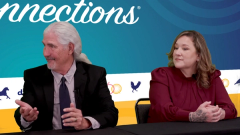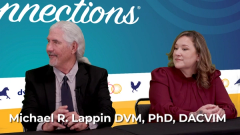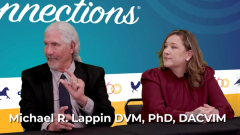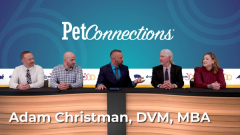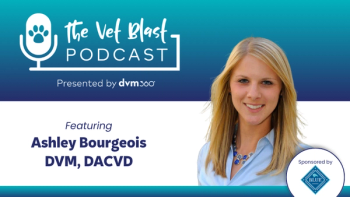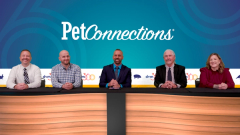
COVID-19's impact on Parvo management
Panelists discuss how Parvo management changed during the COVID-19 pandemic
Episodes in this series

Sponsored by Elanco Animal Health
Adam Christman, DVM, MBA
You know, when we're treating parvo virus, whether it be from a financial perspective, whether it be like an Believe it or not an outpatient perspective, puppies, for instance, a lot of pet parents are concerned about them being hospitalized for that length of time. And, you know, where do we draw that line when we're treating these animals with Parvo was like, "Oh, my gosh, I'm concerned about them, you know, behaviorally speaking." What's your perspective on that?
Christopher Pachel, DVM, DACVB, CABC
I think there's a couple of different elements here. One is knowing that the hospitalization experience had, it has its own level of trauma that goes into it, despite best intentions to operate with fear free protocols, and to really do a good job for those puppies. The treatment itself can create a conditioned emotional response that can really set those puppies up to have negative associations with veterinary care going forward. And so I worry about the trauma that's being experienced, which is not exclusive to Parvo. But it's a big part of that, especially when they're feeling so poorly in the early stage of the disease. I also have concerns about lost opportunities, especially when we're thinking about those puppies who are joining households at 8, 9, 10 weeks of age; that is right within the primary socialization window. And so to lose that opportunity, we're actually losing developmental trajectories of brain development. It's not just well, we'll catch up later, we're actually missing a window that is critically important to the appropriate development of brain structures. And so I think about that in both of those phases. And gosh, when you when you combine both of them together, the impact can be incredible.
Adam Christman, DVM, MBA
So we have that we talked about impact. And you know, then we had this thing called COVID that came around a few years ago. How has COVID-19 impacted Parvo? Dr. Lapin has? Was there a lapse of vaccination? Or? I mean, it's something that parents couldn't get out to follow up in those series. What was that like?
Michael Lappin, DVM, PhD, DACVIM
Yeah, the COVID-19 epidemic, pandemic was actually quite impactful for everything that we do at the teaching hospital, as well as the shelter program that I help manage that because of a variety of different restrictions. But I think one of the comments that you made already was very impactful, people didn't vaccinate as well. So we probably on paper, couldn't document a spike bear that belief personally, because of decreased vaccine visits, it had to have that particular impact.
Adam Christman, DVM, MBA
Were you seeing a lot more puppies from Parvo during COVID?
Fathom Woods
We did, yeah. Unfortunately, with people losing jobs, they couldn't afford to care for their animals, especially with a medical emergency like Parvo can be. And so we did get a lot of surrenders because of that, which is really tough. But one of the neat things we can do is sometimes when the dogs do make it, which is most of the time, we can see if the owners want to take them back. And we reach out to them and let them know, your puppy made it, you know, even though they surrendered, we can, you know, give them that chance to raise their puppy again.
Adam Christman, DVM, MBA
And COVID-19 was such a disruption across many things, but specifically in the critical care and emergency medicine component. So what was that like knowing that maybe potentially pet parents had to wait 5, 6, 7 hours to be seen with a potential Parvo suspect?
Erik Zager, DVM, DACVECC
So I ,for better or worse that luckily, I was in Hong Kong for the beginning of the pandemic, so I didn't have to witness you know, what many of my colleagues and friends had to witness in the worst parts of the pandemic where in addition to having many people getting their Parvo puppy is that staffing, veterinary hospitals were reduced. And so think about the time commitment that was required for these isolation patients. And now, do that with half of the staff that you would have had normally and it is just a recipe for disaster.
Adam Christman, DVM, MBA
Absolutely.
Newsletter
From exam room tips to practice management insights, get trusted veterinary news delivered straight to your inbox—subscribe to dvm360.

